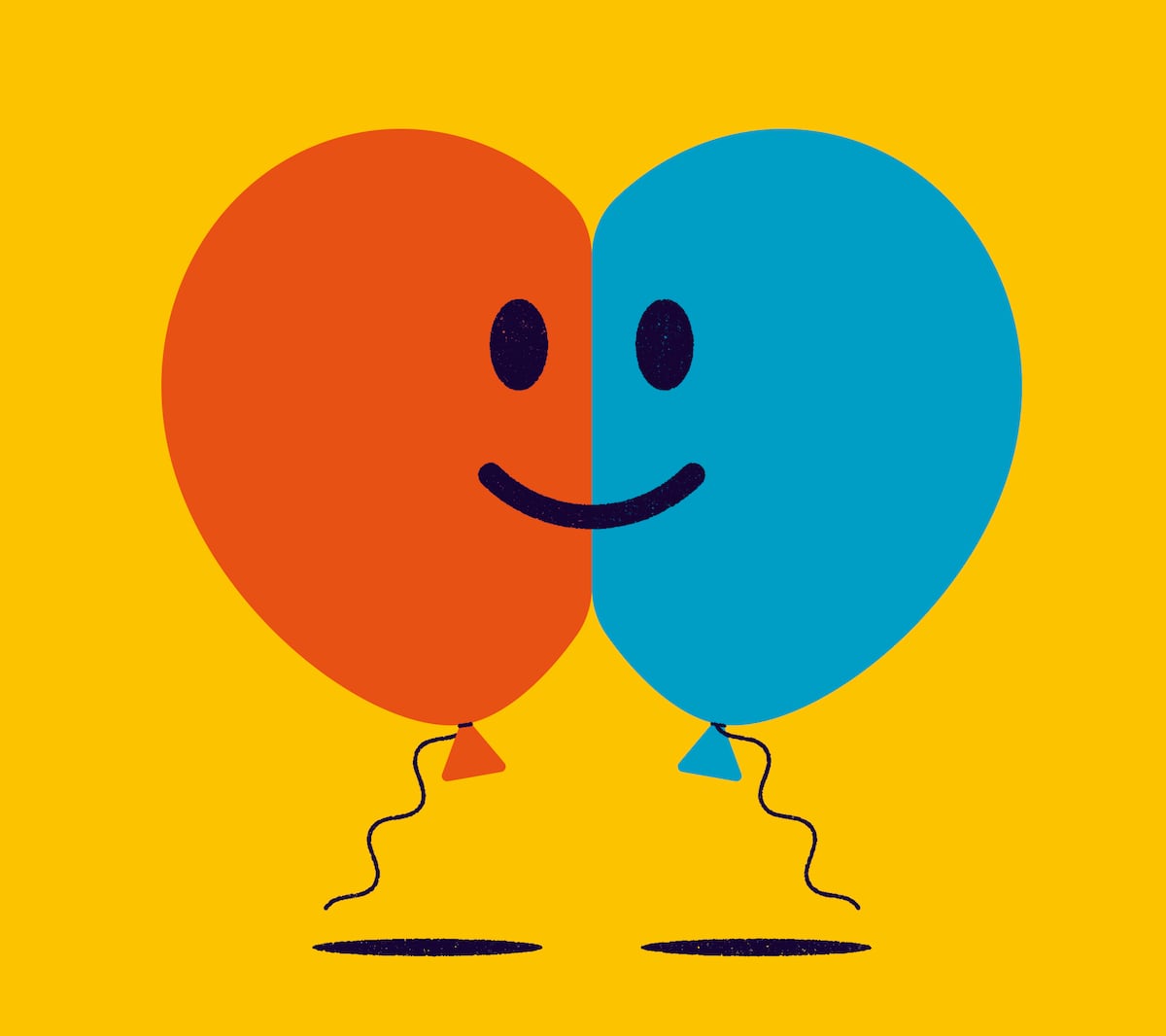This spring A good life
is published in Spain
, which includes the longest scientific study ever carried out on happiness.
Started in 1939 by Harvard University to this day, which has allowed it to encompass several generations, it sought to answer the question: what makes us happy?
In the book signed by Robert Waldinger and Marc Schulz, which was published in the US at the beginning of the year, we see the conclusions of
The Harvard Study of Adult Development
, which followed the lives of subjects from the same families for more than 80 years.
If we go back to recent times, given the breadth of the study, in 2007 76% of the millennials interviewed about their life goals put “get rich” first and half included “become famous” among their main goals.
It is interesting to observe what these same people answered 10 years later, as adults, when they answered the question again.
The desire for fame had already moved down the list, while money was still an important topic with some nuances.
In addition to aspiring to a successful professional career, many interviewees associated happiness with "a life without debt."
Reaching that desire, after having aspired to be rich, reflects a whole reality check.
It should be noted that this lengthy investigation focused largely on the white male population of Boston, but the value of the study is that the subjects regularly updated their lives.
This has allowed us to know how the different vital circumstances, as well as personal habits, affect our well-being and happiness.
Analyzing data from eight decades, the conclusion researchers have reached is that what has been shown to bring lasting happiness is not money or professional success.
Neither does exercise or diet, although they certainly contribute to well-being.
The number one factor of happiness, according to the study, is having good relationships.
People with a more intimate connection to family, friends, and community are happier and also in better health.
To measure relational quality, the 1989 Harvard questionnaire that participants received was this:
Think of your 10 best friends (excluding family and close relatives).
How many of them would you put in the following categories?
1. Intimates.
We share most of our joys and sorrows.
2. Companions.
We interact frequently based on shared interests.
3. Punctual.
We are not looking for each other expressly.
The people who proved to be the happiest over time were the ones who cultivated the first category of friends.
It is curious to observe that during adolescence and early youth we tend to take great care of our tribe of close friends.
This may be one of the reasons why we look back on that era with nostalgia.
As we assume adult responsibilities, friendships are relegated to a second or third level.
Work and other commitments end up taking over all the gaps, and then the excuse arises that "there is no time" for such a vital activity.
According to the authors of
A Good Life
, “friends can rescue us when we're down, provide us with an important connection to our own history, and perhaps most important of all, make us laugh.
Sometimes there is nothing as beneficial for health as having a good time”.
Our need for quality human connections has been central to the evolution and survival of our species, Waldinger and Schulz note.
Since we were hunter gatherers, having a tribe of our own has given us protection from the dangers of life.
In current times, we could include among those dangers mood disorders that affect a large part of the population.
It is never too late for happiness if we start to administer vitamin R, from relationships, to our lives.
For this, it must be given priority over many other obligations and commitments.
This will be our best investment because, as the Harvard study shows, whoever doesn't have time for friends doesn't have time to be happy.
the sun project
— In Spain there are also studies on human well-being.
In 1999 the SUN Project (Seguimiento Universidad
de Navarra) began, which currently has more than 22,500 participants, to which 2,000 new ones are added each year.
— Every two years the participants receive a new questionnaire to measure their progression.
— This allows researchers to study the causes of depression, but also those of obesity, cardiovascular diseases or hypertension, among others.
— One of the subjects who have volunteered for this study is the doctor of psychology Andrés Martín Asuero, who, after reading the results of the Harvard research, believes that a practical way to improve our lives is by fostering our relationships.
“If we don't understand what makes us happy, we may end up choosing high-paying jobs that take us away from our family or friends,” he insists.
Francesc Miralles
is a writer and journalist who is an expert in psychology.
Subscribe to continue reading
Read without limits
Keep reading
I'm already a subscriber









